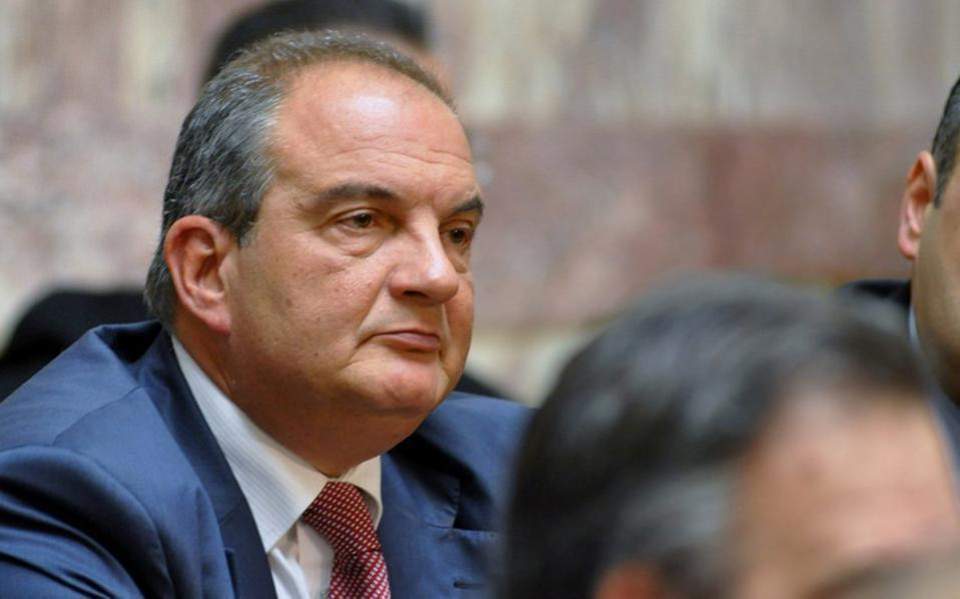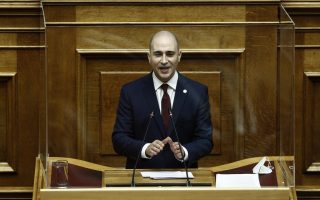Karamanlis on the country’s past and future

Pundits will be tuning in Wednesday to hear what former prime minister Kostas Karamanlis has to say in his speech at the Karamanlis Foundation. Many are prepared to interpret – or misinterpret – his references and comments, which carry the weight of his five-and-a-half years in office and his continued resonance with many New Democracy supporters and voters.
Ever since he left office some 12 years ago, Karamanlis has avoided making waves and upsetting party unity, putting aside any objections he may have with decisions and choices in policy and appointments.
During that time he expressed his opinion discreetly and offered advice if asked, but that’s about it. After all, his close family connection to if not identification with New Democracy excludes divisive objectives from his part.
It is in such a spirit that Prime Minister Kyriakos Mitsotakis and former premier Antonis Samaras have both been invited to the event.
In contrast to Karamanlis, the latter intervenes frequently, through op-eds and interviews. There is a key difference between the two former prime ministers. Karamanlis has chosen to rarely speak publicly but when doing so to address the whole of ND and often voters beyond. This is no surprise as his political philosophy has always been to express the middle ground, which helped increase the party’s popularity in the political center and beyond.
Samaras, meanwhile, is a symbol of the harder right-wing camp, which also constitutes a significant portion of ND voters. His interventions – like when he recently chided that ND is not Potami, in reference to the now defunct centrist party – send a very specific message inside and outside the party.
His more aggressive approach stems from a personal sense of injustice because German Chancellor Angela Merkel did not support him in the fall of 2014, when she could have, thus worsening his position on the domestic electoral front, while leftist SYRIZA, using the presidential election, robbed him of the opportunity to see through and take credit for Greece’s exit from recession. His frustration is understandable, but it is certain that other prime ministers have felt equally badly done by at times, from Kostas Karamanlis to George Papandreou and Alexis Tsipras.
In any case, any comments Karamanlis makes tomorrow will carry weight – but will be in a constructive spirit with respect to the ruling party’s work, rather than trying to undermine it.
This writer believes that true statesmen – and Greece doesn’t have a whole lot of them – have an obligation to take a stand on major national issues such as the recent Greek-French defense agreement, and that regardless of whether they agree or not, politicians and citizens would benefit from listening to their opinions which were formed as a result of the knowledge and experience they gained as leaders of the country.





